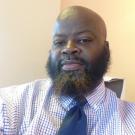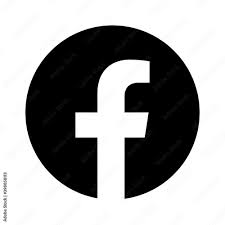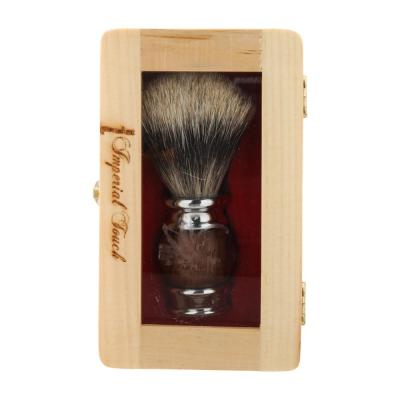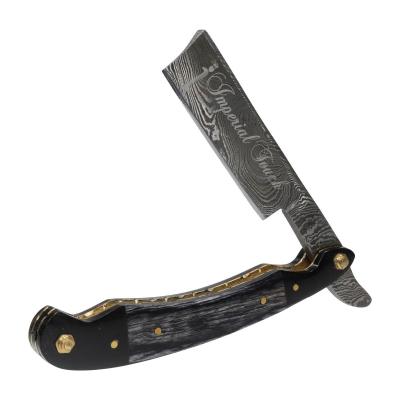Does shaving boost men's hair growth?

Can Shaving Make Men’s Hair Grow Thicker?
For many young girls, the thought of shaving their legs was daunting, fueled by the fear that their hair would grow back thicker and more unruly, like a wolf's fur. On the other hand, schoolboys with sparse facial hair held onto the hope that shaving would magically transform their meager whiskers into a robust, manly beard.
The idea that shaving could stimulate hair growth was a tantalizing prospect, especially for fourteen-year-old boys eager to accelerate their transition to manhood.
Despite the persistence of this myth, its origins remain unclear. It's time to separate fact from fiction and explore whether shaving truly has an impact on hair thickness. Can shaving be added to the list of natural methods for thickening men's hair? Let's take a closer look and find out.
The notion that shaving can affect hair growth has been a topic of interest for many, sparking both fear and hope. For young girls, the thought of shaving their legs was often accompanied by the worry that their hair would grow back thicker and more unruly, akin to a wolf's fur. On the other hand, schoolboys with sparse facial hair held onto the hope that shaving would magically transform their meager whiskers into a robust, manly beard.
The idea that shaving could stimulate hair growth was a tantalizing prospect, especially for young teenagers eager to accelerate their transition to manhood. The promise of shaving a few facial hairs today and waking up with a full beard tomorrow was a tempting one.
However, the origins of this myth are unclear, leaving us to investigate the truth behind it. Can shaving really be added to the list of ways to naturally thicken men's hair? It's time to explore the facts and separate myth from reality.
Does Shaving Boost Men's Hair Growth?
For all the young boys eager to grow a robust beard, the truth may be disappointing: shaving facial hair does not, in fact, make it grow back thicker or faster. This myth has been debunked, and it's easy to understand why it's simply not true.
When you shave, you're only cutting the visible shaft of the hair, leaving the follicle - the living, growing part of the hair beneath the skin's surface - completely untouched. Since the follicle remains unaffected, shaving has no impact on the rate or thickness of hair growth.
Why Do Men Think Shaving Makes Hair Grow Back Thicker?
The myth that shaving makes hair grow back thicker has persisted for years, and there are several reasons why. One reason is coincidence. For example, a young boy may start shaving at the same time he experiences a surge of hormones during puberty, which can stimulate hair growth. This coincidence can lead to the mistaken assumption that shaving is responsible for the increase in hair thickness and growth.
Another reason for this myth is the way our hair grows. When hair is cut, the blunt tips can appear thicker than the tapered ends of grown-out hair. This is because hair shafts are naturally thicker at the base and thinner at the tip. When we shave, we're cutting the hair at its thickest point, making the stubble appear coarser. As the hair grows out, it will eventually taper to a thinner point, but the initial appearance of thickness can be deceiving.
Additionally, when hair grows back after being shaved, it's fresh and undamaged. This uniformity of new hair growth can create the illusion of increased thickness and speedier growth. Furthermore, the lack of exposure to the sun's bleaching effects can make the stubble appear darker, adding to the illusion of thicker hair. These factors combined have contributed to the persistence of the myth that shaving makes hair grow back thicker.
Does Shaving Your Head Make Your Hair Thicker?
Shaving your head may seem like a drastic measure to stimulate hair growth, but unfortunately, it's not an effective solution. If you're experiencing hair loss and shave your head in hopes of reversing a receding hairline, you're likely to be disappointed. The truth is, shaving has no impact on hair thickness or growth rate.
If you're concerned about thinning hair, there are more effective solutions available. Our men's thinning hair treatment kit is a great place to start. This comprehensive kit includes our all-natural thickening shampoo and conditioner, as well as our Hair Food, a specially formulated vitamin infusion hair thickener designed specifically for men.
The Quest For A Thicker Beard
When it comes to growing a thicker beard, it's essential to understand what's possible and what's not. While you can't create new hair follicles where there aren't any (short of surgery, that is), there are ways to optimize the hair growth you do have. Hair density is largely determined by genetics, but it can also be influenced by age and hormone levels.
If you're looking to grow a new beard, patience is key. It takes time, and it's especially important to be realistic if you're in your teens or early twenties. Beards often don't reach their full potential until later in life. In the meantime, focus on taking care of your overall health. A balanced diet provides the necessary fuel for beard growth, while regular exercise promotes healthy circulation to the follicles.
Additionally, it's essential to address any underlying health issues that may be affecting your beard growth. Low testosterone levels, for example, can impact hair growth, and may also be accompanied by symptoms like fatigue, depression, and low sex drive. If you're experiencing these symptoms, it's a good idea to consult with your doctor.
Taking care of your skin is also crucial for healthy beard growth. A consistent skincare routine will help create a healthy environment for your hair to grow. And once your beard has progressed beyond the stubble stage, using a high-quality beard oil will help keep your hair soft, strong, and healthy, allowing it to grow to its full.
Steps To Achieve the Perfect Shave
Top 8 Skincare Conditions In Men
The Hidden Dangers of a Dirty Beard




























